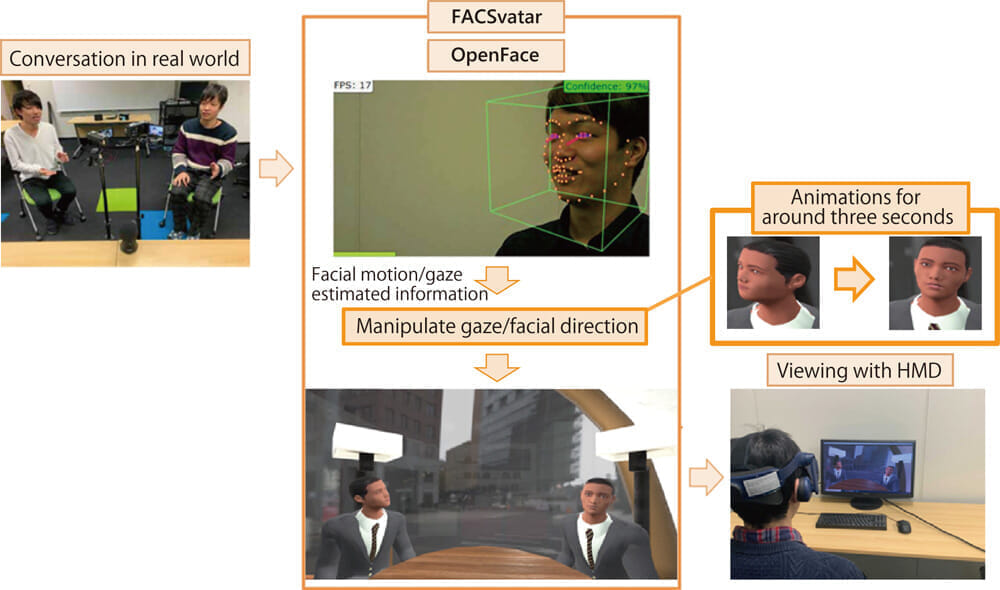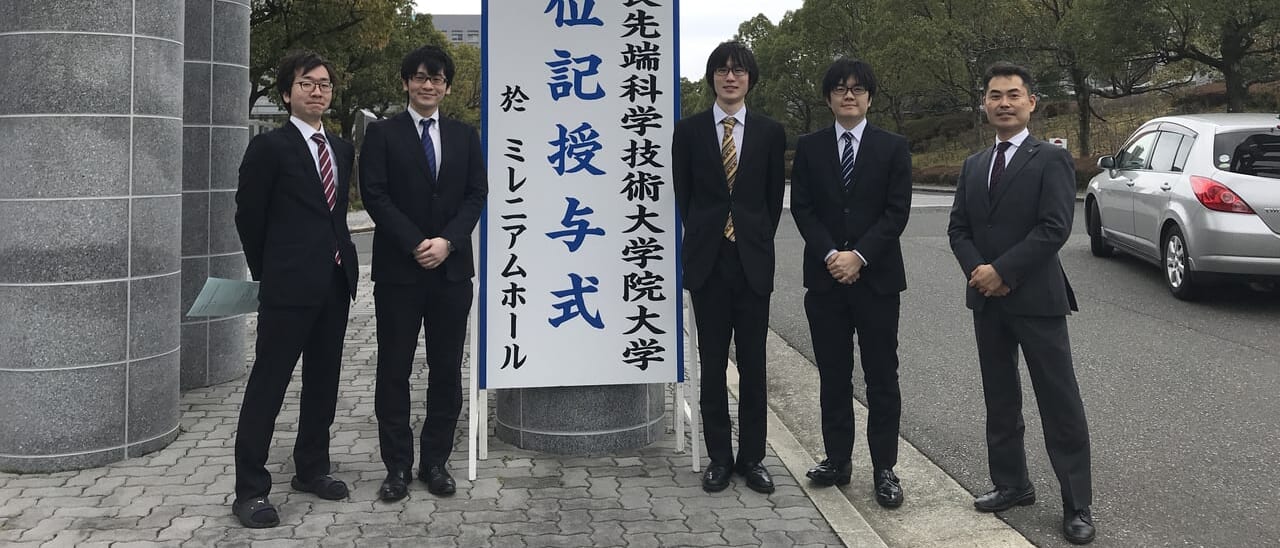Our former student Higashi’s paper has been accepted to Journal of Robotics and Mechatronics. His paper reports on the experiments in virtual reality that have found that visually modulating the avatars’ faces and gazes such that they appear to turn toward the participants frequently has increased their sense of participation in the conversation.
https://doi.org/10.20965/jrm.2021.p1013
(The paper PDF is open access)
- Kenta Higashi, Naoya Isoyama, Nobuchika Sakata, and Kiyoshi Kiyokawa,
“Manipulating Sense of Participation in Multipartite Conversations by Manipulating Head Attitude and Gaze Direction”,
Journal of Robotics and Mechatronics, Vol.33, No.5, pp.1013-1028, 2021. - Abstract:
Interpersonal communication is so important in everyday life that it is desirable everyone who participates in the conversation is satisfied. However, every participant of the conversation cannot be satisfied in such cases as those wherein only one person cannot keep up with the conversation and feels alienated, or wherein someone cannot communicate non-verbal expressions with his/her conversation partner adequately. In this study, we have focused on facial direction and gaze among the various factors that are said to affect conversational satisfaction. We have attempted to lessen any sense of non-participation in the conversation and increase the conversational satisfaction of the non-participant in a tripartite conversation by modulating the visual information in such a way that the remaining two parties turn toward the non-participating party. In the experiments we have conducted in VR environments, we have reproduced a conversation of two male adults recorded in actual environments using two avatars. The experimental subjects have watched this over their HMDs. The experiments have found that visually modulating the avatars’ faces and gazes such that they appear to turn toward the subjects has increased the subjects’ sense of participation in the conversation. Nevertheless, the experiments have not increased the subjects’ conversational enjoyment, a component of the factors for conversational satisfaction.

